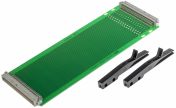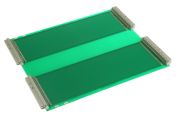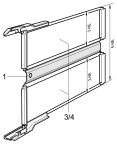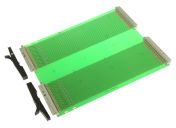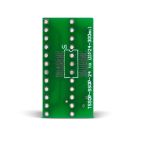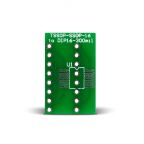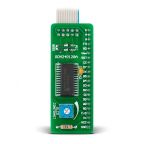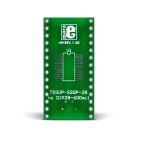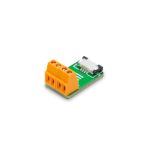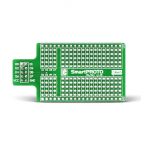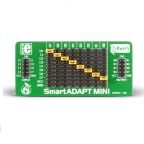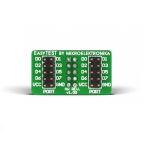Extender Boards & Adapter Boards
Extender boards and adapter boards are electronic circuit boards used to bring a circuit card out of an enclosure or card cage so it can be tested or debugged and there are no restrictions from view or probing.
Surface Mount (SMT) are either mounted directly on to the surface of a printed circuit board (PCB) or have legs that go through holes drilled in the PCB, a surface mount to through hole adapter board allows you to use one kind of component on the other kind of board.
How do extender boards and adapter boards work?
Extender boards work by extending signals from the motherboard for testing or debugging purposes. Most of them offer access to the bus signals (bundles of wire held together) through marked probe points, while some utilise multi-layer technology to control cross talk (unwanted transfer of signals between communication channels) and signal distortions.
Extender boards and their relevant adapters come in a wide array of options that support different form factor variations, ranging from Eurocards to Accelerated Graphic Ports (AGPs).
Extender boards are commonly used in highly integrated applications, such as:
- Medical equipment, night-vision view systems and industrial monitoring requiring enhanced graphics capabilities
- Shipboard systems for high definition displays and target tracking
- Mission management, integrated display processing and navigational control of avionics systems
- Applications requiring a mix of enhanced graphics, I/O (Input/Output) options and high compute density.
What are surface mount to through hole adapter boards used for?
SMT to through hole adapter boards are mostly used in the prototyping of projects before any mass programming or assembly. They facilitate the testing and modification of a circuit or device, allowing you to go debug and fix any issues with your prototype. The boards come in different sizes depending on your needs, and can be single or double sided. Some have pre-scored break lines to allow for the separation of individual modules from the board as a whole.
Gerelateerde Links
- MIKROE-305, 16 Way Extender Board Adapter Adapter Board
- MIKROE-308, 24 Way Extender Board Adapter Adapter Board
- 23021-608, Extender Board Adapter
- 23021-657, Extender Board Adapter
- 23021-613, Extender Board Adapter
- 23021-652, Extender Board Adapter
- 23021-609, Extender Board Adapter
- 23021-653, Extender Board Adapter
